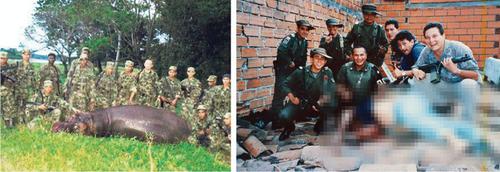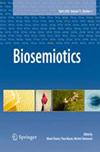动物主义者,毒品文化主义者,环保主义者。哥伦比亚河马案例中的自然景观
IF 2.1
3区 社会学
Q1 HISTORY & PHILOSOPHY OF SCIENCE
引用次数: 0
摘要
自从20世纪80年代巴勃罗·埃斯科瓦尔(Pablo Escobar)的奢华动物园将河马引入哥伦比亚以来,河马已经成为马格达莱纳河流域的一个生态问题。本文提出了一个生态符合学话语分析的不同愿景的自然制定的利益相关者和公众舆论围绕河马在哥伦比亚的管理。具体地说,我们关注三种特定的自然话语和愿景:动物主义者、毒品文化主义者和自然保护主义者。在本文中,我们介绍了哥伦比亚的相关社会和生态背景,自然理论的愿景以及这些愿景对所谓入侵物种保护措施的影响;我们描述和分析了我们所关注的三种自然观,并对这三种自然观在Twitter上的话语动态和争议进行了计算分析;我们通过提出一种基于半灭绝的生物符号框架的替代观点,对入侵物种的概念提出了可能的行动方案和建议,以解决公共话语和生态系统保护之间的密切关系。本文章由计算机程序翻译,如有差异,请以英文原文为准。

Animalista, Narco-Cultural, Conservacionista. Visions of Nature Around the Case of Hippos in Colombia
Abstract Since their introduction in Colombia in the '80s for Pablo Escobar’s extravagant zoo, hippos have become an ecological problem around the basin of the Magdalena River. This article proposes an ecosemiotic discourse analysis of different visions of nature enacted by stakeholders and public opinion around the management of hippos in Colombia. Concretely, we focus on three particular discourses and visions of nature: animalista, narco-cultural, and conservacionista. In this article, we present the relevant social and ecological context of Colombia, the visions of nature theory and the impact of such visions on conservation measures regarding so-called invasive species; we describe and analyze the three visions of nature we center on, and present a computational analysis of discourse dynamics and controversies in Twitter between of such visions of nature; and we reflect on possible courses of action and recommendations about addressing the close interrelation of public discourses and ecosystem conservation by proposing an alternative view, based on the biosemiotic framework of semiocide, to the concept of invasive species.
求助全文
通过发布文献求助,成功后即可免费获取论文全文。
去求助
来源期刊

Biosemiotics
HISTORY & PHILOSOPHY OF SCIENCE-
CiteScore
3.40
自引率
37.50%
发文量
42
审稿时长
>12 weeks
期刊介绍:
Biosemiotics is dedicated to building a bridge between biology, philosophy, linguistics, and the communication sciences. Biosemiotic research is concerned with the study of signs and meaning in living organisms and systems. Its main challenge is to naturalize biological meaning and information by building on the belief that signs are fundamental, constitutive components of the living world.
Biosemiotics has triggered rethinking of fundamental assumptions in both biology and semiotics. In this view, biology should recognize the semiotic nature of life and reshape its theories and methodology accordingly while semiotics and the humanities should acknowledge the existence of signs beyond the human realm. Biosemiotics is at the cutting edge of research on the fundamentals of life. By challenging traditional assumptions on the nature of life and suggesting alternative perspectives, it opens up exciting new research paths.
 求助内容:
求助内容: 应助结果提醒方式:
应助结果提醒方式:


